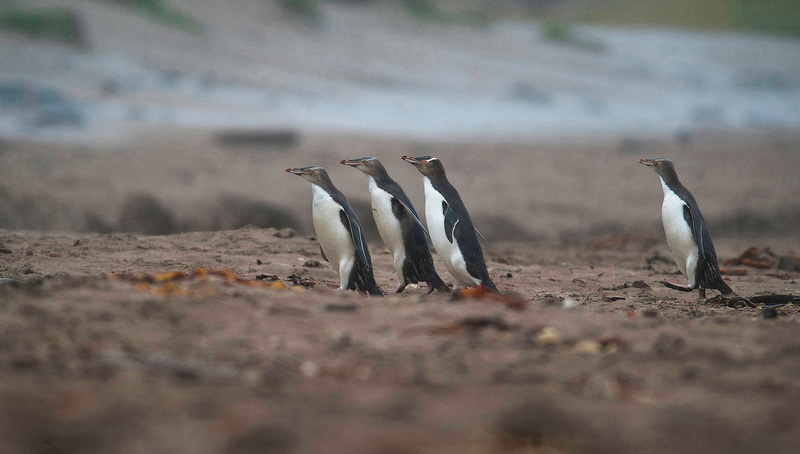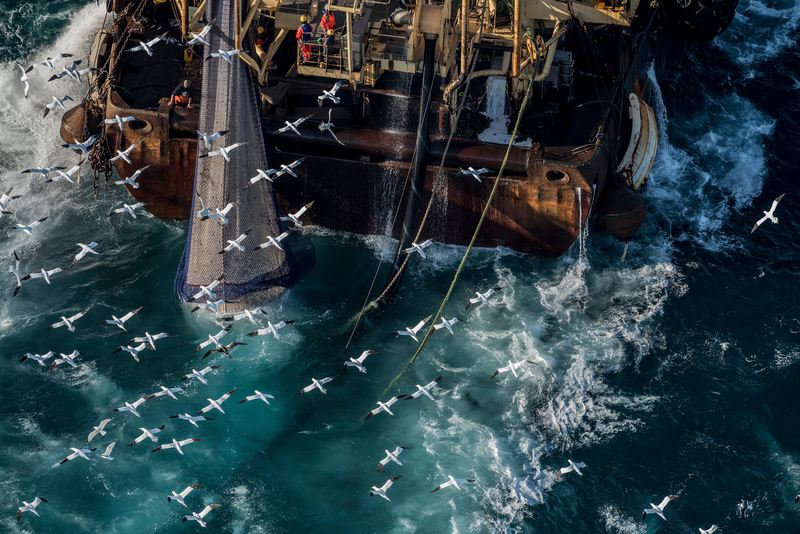If you’re one of the lucky ones who managed to work from home through the Covid-19 pandemic, you’ve probably spent more time than ever on camera. Zoom calls have been our windows to the world for this period. Knowing we’ll be seen on camera helps keep us presentable – we’ve all seen the memes about PJs on the bottom, business outfits on the top. It’s simple really, knowing people can see us changes how we might otherwise act.
The same is true for all kinds of things. Studies have proved humans are more likely to follow the rules when they think they’re being observed.
It’s the very same thing when it comes to industry. They follow the rules when they know there are regulations in place to keep things in check. But for commercial fishing in New Zealand, this is a fact they don’t want to accept.
Did you know that when cameras were implemented on boats in Australia, the commercial fishing industry admitted to catching eight times as many seabirds, seven times as many marine mammals, and six times as much bycatch as they had been previously reporting?
It makes sense in the most human of terms. When we think we’re going to be caught out, we’re more likely to be upfront and transparent about things.
In New Zealand we still rely mostly on fishing vessels volunteering the truth about how much they catch and if they have contact with any protected species. It is estimated that up to 24.7 million tonnes of catch went unreported by New Zealand fisheries between 1950 – 2013, and MPI have admitted to widespread issues with fish dumping.
In 2018, every single time a fishing boat caught an endangered Hoiho penguin – an independent observer was onboard. This happened three times. But, when the fishers had no independent observation and were self reporting their catch – not a single other penguin was caught. What are the odds?

A NZ Fisheries 2019 report showed commercial long-liners were nine times more likely to report catching a seabird, if observers were on board. Without any systems to check truthful reporting, the sad fact is many fishing companies simply avoid doing so.
Why does reporting matter?
By reporting lower bycatch rates, hiding fish dumping or contact with protected species, commercial fishers can avoid penalties and make their industry look better to the public. Headlines about endangered dolphins or penguins caught in nets simply aren’t a good look. Unfortunately this industry has major incentives to not be transparent.
But this information is crucial for ensuring the oceans are managed sustainably, and to ensure our fishing practices are in line with what the New Zealand public would want.
It seems obvious, when there is so much incentive not to tell the truth, that more transparency and better checks and balances are needed. Imagine if the police relied on the public to self-report every time they broke the speed limit in a vehicle. We might find suddenly there were no issues with speeding at all, even while road accidents were still occurring.
What about observers?
One way the Government currently monitors fishing practices is to put independent observers on board some vessels. Observers undertake important work, monitoring the fishing vessel’s practices, verifying reporting, as well as collecting data needed for stock assessments and ensuring vessels are adhering to safety and employment standards.
As we’ve seen above, observers on board make a big difference to reporting from fishers. But, the number of observer trips completed in New Zealand is too low and their effectiveness in ensuring compliance is limited. Many smaller vessels fishing inshore are too small for observers. Unfortunately it’s near to our coasts that boats are interacting with wildlife the most. Some boats simply refused to have observers on board. And because of the low rates of coverage fishers who do take them can easily alter their routes and practises on the handful of days they might be fishing with an observer on board.

Now, with concerns about Covid transmission, the number of observers on boats has fallen even further. If fishing is an essential service that can be undertaken safely, observers are just as essential, and we must find ways to ensure they can complete their jobs as well. Cameras on board would have been the perfect fall back solution for the Government in times like this. Unfortunately there has been an utter failure of political leadership to get them implemented.
Cameras pushed out of sight, out of mind
Following repeated scandals about the fishing industry failing to truthfully report their behaviour – across multiple fisheries and investigations – legislation was created to implement cameras on boats. Positioned at the aft (or rear), these cameras would record images of the hauls being brought onboard by commercial fishers – allowing for verification of bycatch records and any contact with protected species.
But the implementation has been repeatedly delayed and stalled. The programme has faced enormous opposition from industry heavyweights, and the Government has bowed to it. Complexity is often used to justify the delays in implementation. Yet fleets across Australia, and several Pacific Islands have successfully implemented cameras on boats programmes. It is beyond belief that the smart women and men working in our industry and Government can’t work it out. No, the real issue here is political will to bring the commercial fishing industry to heel.
Bright sparks leading the way
While the likes of industrial fishing companies such as Talley’s and Sanford work to oppose implementing cameras, some smaller fishers who are genuinely committed to the long term sustainability of the oceans have voluntarily implemented them, and are sharing the data. This kind of action demonstrates that many small fishers truly want to be stewards for the ocean and accountable to the public. Hopefully the bigger players and Government can catch up with them.
If our response to the Covid crisis is to be underpinned by building resilience and environmental protection, the delays to implementing cameras on boats cannot be justified any longer.
